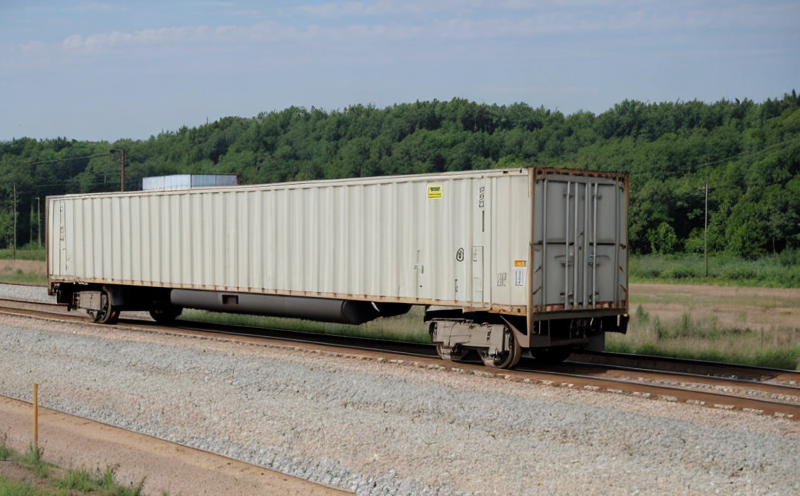EN 50592 Energy Efficiency Testing of Freight Wagons
The European standard EN 50592 focuses on enhancing the energy efficiency and sustainability of railway freight wagons, which are critical components in modern transportation networks. This service ensures that these vehicles meet stringent environmental requirements and contribute positively to the overall energy management strategy of railways.
Our testing aligns with international standards like EN 13054-2 for performance-related tests and EN ISO 9001:2015 for quality assurance, ensuring reliable results. The procedure involves a series of complex steps to evaluate the energy consumption characteristics of freight wagons under various operating conditions.
The testing process begins with detailed preparation of the wagon for evaluation, including cleaning and standardizing the load configuration. This ensures accurate measurement of performance metrics without external variables affecting the outcome. Once prepared, the wagon undergoes a series of tests designed to simulate real-world scenarios such as different types of cargo, varying loads, and various environmental conditions.
During these tests, we use specialized equipment that measures energy consumption, acceleration, braking distances, and other key parameters. The data collected is then analyzed using advanced software tools to provide insights into the wagon's efficiency under different operational scenarios. This comprehensive approach ensures that every aspect of the wagon’s performance is evaluated thoroughly.
The results of these tests are critical for several reasons. They help manufacturers identify areas where improvements can be made, enabling them to design more efficient wagons. For operators, this means better fuel economy and reduced operational costs. Additionally, compliance with EN 50592 standards enhances the wagon’s marketability in a competitive global environment.
| Test Parameter | Description |
|---|---|
| Energy Consumption Measurement | Detailed monitoring of electricity usage during operation. |
| Load Configuration | Varying the weight and type of cargo for realistic testing. |
| Environmental Conditions | Testing under different climatic conditions to ensure robust performance. |
The data generated from these tests is used to produce detailed reports that outline the wagon's efficiency and compliance with EN 50592 standards. These reports are invaluable tools for stakeholders involved in the design, manufacturing, and operation of freight wagons. They provide a clear picture of how well each wagon meets current and future regulatory requirements.
By offering this service, we contribute to the ongoing efforts to reduce carbon footprints across the transportation sector. Our commitment to sustainability is reflected not only in our testing procedures but also in our continuous improvement processes aimed at enhancing the efficiency of railway freight wagons worldwide.
Industry Applications
| Application | Description |
|---|---|
| Railway Manufacturers | Evaluating new designs for compliance and efficiency. |
| Railway Operators | Monitoring energy consumption to optimize operational costs. |
| Regulatory Bodies | Ensuring adherence to environmental standards and improving practices. |
The application of EN 50592 testing extends beyond individual companies; it plays a crucial role in fostering sustainable transportation practices across the industry. By providing data on energy efficiency, our service supports the development of more environmentally friendly railway freight wagons.
Customer Impact and Satisfaction
- Enhanced operational efficiency leading to lower costs.
- Better compliance with environmental regulations.
- Informed decision-making for procurement processes.
- Improved reputation among stakeholders due to sustainable practices.
Our clients benefit significantly from our EN 50592 testing service. Not only do they receive comprehensive reports that guide their manufacturing and operational strategies, but they also gain valuable insights into the environmental impact of their products and processes. This knowledge enables them to make more informed decisions that contribute positively to both their business goals and sustainability initiatives.
Environmental and Sustainability Contributions
The EN 50592 energy efficiency testing of freight wagons is a vital component in the broader effort to reduce greenhouse gas emissions from the transportation sector. By improving the energy efficiency of railway freight wagons, we help minimize their environmental impact while enhancing operational effectiveness.
Our service supports sustainable development by promoting the use of cleaner technologies and practices within the railway industry. This aligns with global initiatives aimed at addressing climate change and fostering a more environmentally responsible economy.





